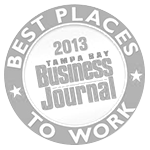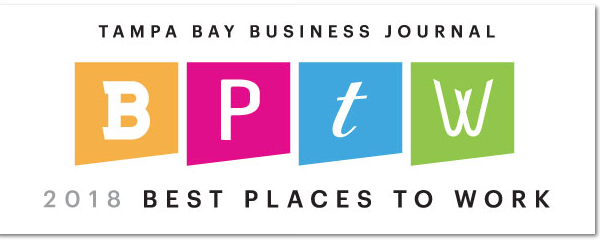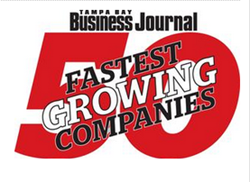Resume Writing Tips
Ferreri Search will format your resume and submit it to potential employers for you. But we’ll need you to first supply us with a solid resume that includes important information about your professional history. As you’re putting your resume together, here’s some advice on how to make it a powerful tool for selling your capabilities. If you make some of the mistakes we list below, we can help correct them. But it’s much better for us to be focused on the real message your resume rather than being distracted by correcting odd fonts, graphics and layouts that might be present.
Your resume is one of the most important tools in your job search arsenal, and a bad one makes all of your other tools worthless. Resumes have three primary purposes: to make a good initial impression, to effectively present your most relevant capabilities, and to secure an interview for you.
Include Your Basic Information
The first items on your resume should be your name (bold and larger font than the rest) followed by your current contact information, such as your address, email address, and phone number. Include this information at the top of each page of your resume. Without this information, the employer (and your Ferreri Search recruiter!) can’t contact you. Note: always avoid using email addresses and voice mail messages that are un-businesslike. You won’t impress anyone with an email address that reads partyanimal123@yahoo.com. Open a new Gmail account for job hunting purposes that uses some form of your name in the address if necessary.
Don’t Overdo the Design
Avoid using a colored background, fancy fonts, or images throughout your document unless they are directly related to the job you are applying for. You want to get the attention of the employer based on your qualifications, not based on your document. After all, your preferences may not be the same as the person reviewing your resume.
Fonts
Select an easy to read font, such as Times New Roman or Arial, and keep your font size around 12. When a recruiter or hiring manager has dozens, if not hundreds, of resumes to review something as seemingly minor as the font used could be the difference in the resume being read thoroughly or not.
Resume Length
If you don’t have a lot of work experience then a one page resume is appropriate; however, if you have had several jobs or several years of work experience, then you may need more than one page to cover them. But you should always try to limit your resume to two pages or less. Just as with our advice on fonts and design, if you overkill the amount of information in your resume then the document might never get read at all.
The Resume is a SALES Tool
And the product is YOU. The content of your resume must address the business need if the employer as well as demonstrate what you have to offer. Think of your resume as an advertisement for you. Just as advertisers customize their ads to appeal to their target audience, you must do so, too.
Personal Information: A Little Is Usually Too Much
Share only personal information that is relevant to the job. Saying you are active in the Central Florida Three-Legged Iguana Rescue Society probably doesn’t matter to the employer. Unless, of course, they make lizard cages. During the interview, you might get a chance to tell them what a marvelously well-rounded person you are, but don’t try to do it in the resume.
Customize Your Resume for Every Job
Creating a generic resume and sending it out for every job of interest is usually a waste of time. Take the time to review in detail the job advertisement and the required qualifications. Tailor your resume and work experience to support what the employer is looking for. Address each point in enough detail so that the employer can easily find the information on your resume and cover letter and understand your depth of experience. One resume does not fit all. After reading the resume, you want the hiring manager to conclude that you are the perfect match for the position.
Always be Honest
Never embellish your experience, job titles, or education. This is the information age. You will get caught. Even if you are not caught in the screening process, the fear of being discovered will follow you. We have all heard stories of CEOs, government officials and other luminaries who lost their jobs because they stretched the truth. Do not become one of them.
Use Bullet Points
Recruiters and hiring managers sometimes must read hundreds of resumes a day. Long paragraphs are a turn-off, so use bullets to make your resume easy to read at a glance. Your goal is to communicate a lot of information as quickly and clearly as possible. Bullet points and short sentences are the best way to accomplish this. Of course, be sure you include enough information to address the employer’s job requirements.
Use Descriptive Job Titles
Sometimes, a title just isn’t enough to tell the reader what you did. Since most employers will make a judgment about your resume in 10 seconds or less, your job titles or summaries should be as descriptive and accurate as possible. For example, instead of Accounting Manager you may want to describe yourself as Manager of Accounts Receivable.
Use Action Verbs
You want to select verbs that quickly communicate your experience and/or achievements in a way that defines you as a leader, focused, and competent. Use words such as “created”, “directed”, “managed”, “designed and implemented”, “organized”, and “led”. A quick Internet search will turn up numerous examples of effective words for any situation.
Avoid Jargon and Slang
Many employers use in-house jargon to describe tools, events, and processes, and it’s easy to incorporate these terms into you daily speech. But others outside your organization will not know what these terms mean, so spell out your experience so they will understand the depth of your knowledge and experience.
List all of Your Work Experience and Dates of Employment
In most cases you should list all of your work experience although sometimes it may be appropriate to group several jobs together during a time period. Also, if you have a great deal of work experience you may omit older positions to keep your resume to a manageable length, especially if your early jobs are not relevant to the one you are seeking. Most employers don’t want to see gaps in employment, so try to show everything you’ve done or at least be prepared to address the gaps.
Quantify
If you saved your company money, let the reader know how much. If you complete your projects on time or under budget, let the reader know how many or by how much. Whether in absolute dollars or expressed as a percentage, you want to give the reader a good sense for just how good you are. Include numbers to show the size of the department, the amount of the budget, or the percentage increase you were responsible for.
Proofread
This cannot be emphasized enough! One small typo and your chances of getting an interview may be gone. Proofread your document several times. Walk away and come back to it later and proofread again.
Get a Second (and Third) Opinion
See if these readers understand the information you are trying to convey. Sometimes we read what we intend to type instead of what we actually type. Ask these people to give you suggestions for improvement. Also, get them to proofread the document while they have it.
Keep Your Resume Current
If you take on additional duties at work, receive an award, or complete a degree, you may want to include this additional information on your resume. Don’t wait until you need the resume, you may forget to include the information. Also, save your old resumes. You might delete some prior activities that are not relevant today, only to find that at a later date you cannot recall them when you need to.




